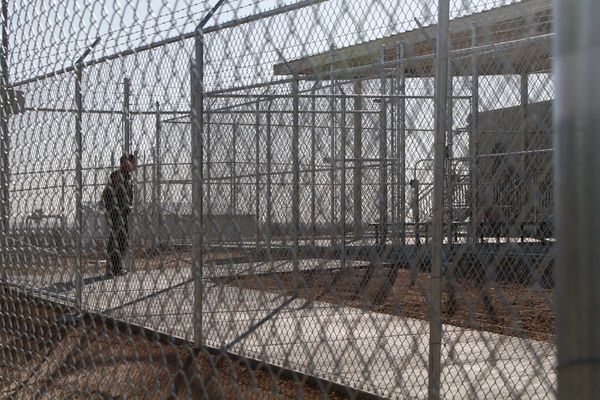
The deadly duo of high mortgage interest rates and high home prices has taken a sledgehammer to the psyche of the U.S. homebuying public.
While housing prices have ticked down somewhat this autumn, rising mortgage rates place a huge obstacle in front of homebuyers. Those buyers aren’t getting any breaks on price, as the median listing price for a U.S. home right now is $425,000.
That alone keeps many buyers on the sidelines heading into 2023.
“A deterioration in the economic outlook and renewed rise in mortgage rates to a 16-year high in September means the housing market is set for a further slowdown,” said Capital Economics property economist Sam Hall. “We estimate that mortgage payments as a share of median income rose to 26% in September. That’s higher than the peak of 24% in 2006 and 1989, which were both followed by house price falls.”
The firm stated in a separate research note that while U.S. home prices will slide back by 8%, the combo platter of still high prices and skyrocketing interest rates will mean home affordability in 2023 will be at its worst level since 1985.
Homebuyers May See a Silver Lining
Due primarily to rising interest rates, high inflation, and low demand, real estate gurus expect some market softening in 2023.
“Owing to persistently high prices and rising rates, the housing market will likely continue to cool over the coming months,” said Lending Tree senior economist Jacob Channel. “This could mean that home prices will continue to fall in some areas.”
Even so, the U.S. real estate sector is light years away from a major decline.
“A total market crash still remains unlikely given how successfully current homeowners are continuing to make their mortgage payments – even in the face of high inflation,” Channel told TheStreet. “As inflation comes down, rates may eventually start to fall next year.”
Even if prices and rates do fall, housing likely will still remain unaffordable for many would-be buyers. “Plus, the record low mortgage rates of 2020 and 2021 are unlikely to return anytime soon,” Channel noted.
Other industry experts agree, noting that available inventory is a thorny problem heading into the new year.
“We'll see a far smaller decline in prices nationwide than many are expecting, and some areas will continue to see some price appreciation,” said Polunsky Beitel Green mortgage lawyer Peter Idziak. “Many industry economists expect national home prices to remain mostly flat in 2023, and one large reason is that housing inventory is extremely low.”
With the economy still strong, historically low foreclosure rates, and many homeowners happy to stay in a home with a mortgage of around 3%, “we should not expect inventory to substantially increase over the next year,” Idziak noted.
Additionally, with inflation slowing and statements from the Federal Reserve that the end of interest rate hikes is nearing, mortgages likely have plateaued, even though rates won’t decrease significantly over the next several months.
“There is some truth to the saying “marry the house, and date the rate,” Idziak told TheStreet. “With such a low inventory, a potential buyer who finds a home she loves may be better served by purchasing now even with rates elevated, and hope to refinance in two to three years.”
Homebuyers See Their Leverage Increase
Is there any wiggle room for needy buyers and can anyone get a good deal on a home?
Mortgage experts think so.
“Just as many individuals need to purchase, there are many sellers who have to sell,” Idziak said. “As the average time on the market has increased, many sellers have begun to offer incentives to make the home more attractive to buyers, and realtors report sellers are even accepting offers below the list price.”
One incentive rapidly gaining in popularity is a seller-paid temporary buydown that effectively reduces the borrower’s monthly payment over the first few years of the loan.
“For buyers that expect rates to decrease in the next two to three years but want or need to buy now, a temporary buydown can make the first few years of homeownership more affordable,” Idziak added. “That’s done by “front-loading” the seller incentive while allowing a borrower to refinance later should rates decrease.”
Additionally, a seller may have an existing mortgage, such as a VA or FHA loan, which can be assumed by a qualifying buyer.
“The buyer will assume the mortgage at the existing rate, which for many could be as low as 3%,” Idziak noted.
Buying up property and building a pre-fab home can be a good idea, too – in the right circumstances.
"Pre-fab homes are a good option but I wouldn’t settle if you can’t see yourself living in one for a decade. You can get an amazing buy out there right now,” said A&E home sales show "Triple Digit Flip” co-host Jamil Damji. “Don’t be afraid to make a low offer."







